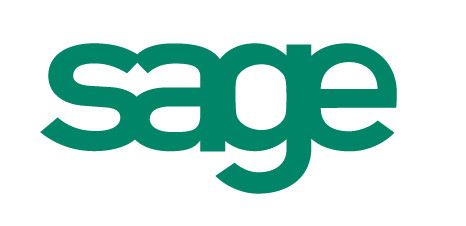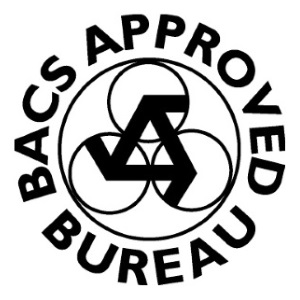What does an Insolvency Practitioner do?
In the challenging landscape of business finance, companies can sometimes find themselves in precarious positions. When cash flow dwindles and creditors begin to press, the expertise of an insolvency practitioner (IP) becomes invaluable.
But what does an Insolvency Practitioner do, and how can they assist in navigating financial distress? This article explores their critical responsibilities, when to engage their services, and the broader impact they have on business recovery and liquidation.
What is an Insolvency Practitioner?
An insolvency practitioner is a licensed professional authorised to act on behalf of companies or individuals facing financial difficulties. Their primary function is to guide businesses through insolvency processes, including liquidation, company administration, and voluntary arrangements. Insolvency practitioners play a pivotal role in assessing a company’s financial health, advising on debt solutions, and implementing strategies aimed at either rescuing the business or increasing creditor returns in the event of closure.
IPs are regulated by professional bodies like the Insolvency Practitioners Association (IPA) or the Institute of Chartered Accountants in England and Wales (ICAEW). Their impartiality and adherence to strict ethical guidelines ensure that all parties involved receive fair and transparent treatment.
When do you need an Insolvency Practitioner?
Recognising the need for insolvency services early can often prevent further financial decline. Companies typically require the expertise of an insolvency practitioner when experiencing persistent cash flow issues, mounting debts, or increasing pressure from creditors.
Key indicators that a business may need to consult an IP include:
- Repeatedly missing payment deadlines
- Receiving statutory demands or winding-up petitions
- Facing threats of legal action from suppliers or creditors
- Significant drops in revenue without a clear path to recovery
- Directors fearing personal liability due to ongoing trading losses
Engaging an IP at the first sign of trouble can provide essential liquidation advice, helping to steer the company towards recovery or controlled closure.
Key responsibilities of an Insolvency Practitioner
The role of an insolvency practitioner encompasses a wide range of responsibilities. Their duties often begin with a thorough assessment of the company’s financial standing, followed by recommendations for the most appropriate course of action.
Core responsibilities include:
- Initial review and assessment — Analysing the business’s assets, liabilities, and cash flow.
- Debt restructuring and negotiation – Engaging with creditors to negotiate payment plans or reduced settlements.
- Company administration — Placing a company into administration to protect it from legal actions while restructuring.
- Liquidation — Managing the process of selling off company assets to repay creditors during insolvency.
- Creditor communication — Acting as a liaison between the company and its creditors, ensuring transparent communication.
In all aspects, insolvency practitioners act impartially, striving to achieve the best outcome for creditors while exploring avenues to salvage viable parts of the business.
What is the Insolvency process?
Navigating insolvency can seem overwhelming, but insolvency practitioners streamline this process by managing it step by step. Below is an overview of how an IP typically oversees insolvency:
- Initial consultation and assessment — The IP evaluates the company’s financial position and outlines potential solutions.
- Recommendation of action — Depending on the findings, the IP may recommend administration, a company voluntary arrangement (CVA), or liquidation.
- Administration — The company enters administration, halting legal action while the IP restructures the business or prepares for asset sales.
- Company Voluntary Arrangement (CVA) — The IP negotiates a formal agreement with creditors to repay debts over a fixed period, allowing the company to continue trading.
- Liquidation — If recovery isn’t feasible, the IP oversees the orderly winding-up of the company, ensuring creditors receive maximum returns from asset sales.
- Disbursement of funds — The IP distributes recovered funds to creditors in accordance with insolvency law priorities.
Throughout the process, the IP remains a constant point of contact, providing clarity and reassurance to company directors and creditors alike.
How to choose an Insolvency Practitioner
Selecting the right insolvency practitioner is crucial to achieving the best possible outcome. When considering an IP, businesses should look for:
- Licensing and accreditation — Verify the IP is licensed by recognised UK regulatory bodies such as ICAEW or IPA.
- Experience and specialisation — Seek practitioners with a proven track record in handling cases similar to your company’s situation.
- Transparent fees — Ensure the IP provides a clear breakdown of costs and services upfront.
- Reputation and references — Request references or reviews from past clients to gauge the IP’s reliability and success rate.
Taking the time to find a qualified and experienced IP can significantly influence the efficiency and outcome of the insolvency process.
Benefits of working with an Insolvency Practitioner
Engaging an insolvency practitioner offers numerous benefits, both for struggling businesses and their creditors. Key advantages include:
- Maximising creditor returns — IPs work to recover and distribute assets efficiently, ensuring creditors receive the highest possible returns.
- Protecting directors — An IP can shield directors from personal liability by ensuring insolvency is handled according to legal guidelines.
- Business continuity — Through CVAs or administration, IPs may facilitate the continuation of trading, preserving jobs and client relationships.
- Stress reduction — With an IP managing complex negotiations and legal procedures, directors can focus on other responsibilities or future ventures.
How we can help
If your business is experiencing financial challenges, don’t wait until it’s too late. Contact BV Corporate Recovery today to speak with an experienced insolvency practitioner and take the first step towards stabilising your company’s future.












